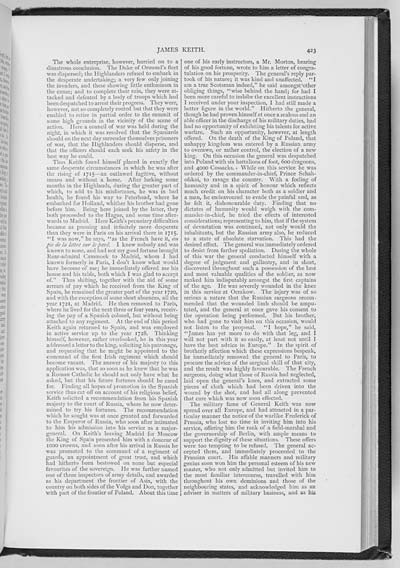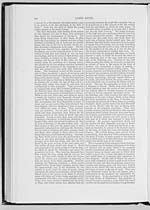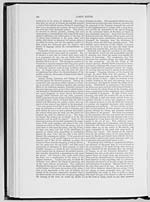423
The whole enterprise, however, hurried on to a
disastrous conclusion. The Duke of Ormond's fleet
was dispersed; the Highlanders refused to embark in
the desperate undertaking; a very few only joining
the invaders, and these showing little enthusiasm in
the cause; and to complete their ruin, they were at-
tacked and defeated by a body of troops which had
been despatched to arrest their progress. They were,
however, not so completely routed but that they were
enabled to retire in partial order to the summit of
some high grounds in the vicinity of the scene of
action. Here a council of war was held during the
night, in which it was resolved that the Spaniards
should on the next day surrender themselves prisoners
of war, that the Highlanders should disperse, and
that the officers should each seek his safety in the
best way he could.
Thus Keith found himself placed in exactly the
same desperate circumstances in which he was after
the rising of 1715�an outlawed fugitive, without
means and without a home. After lurking some
months in the Highlands, during the greater part of
which, to add to his misfortunes, he was in bad
health, he found his way to Peterhead, where he
embarked for Holland, whither his brother had gone
before him. Being here joined by the latter, they
both proceeded to the Hague, and some time after-
wards to Madrid. Here Keith's pecuniary difficulties
became as pressing and infinitely more desperate
than they were in Paris on his arrival there in 1715-
"I was now," he says, "as the French have it, au
pie de la lettre sur le pav�. I knew nobody and was
known to none, and had not my good fortune brought
Rear-admiral Cammoek to Madrid, whom I had
known formerly in Paris, I don't know what would
have become of me; he immediately offered me his
house and his table, both which I was glad to accept
of." Thus shifting, together with the aid of some
arrears of pay which he received from the King of
Spain, he remained the greater part of the year 1720,
and with the exception of some short absences, all the
year 1721, at Madrid. He then removed to Paris,
where he lived for the next three or four years, receiv-
ing the pay of a Spanish colonel, but without being
attached to any regiment. At the end of this period
Keith again returned to Spain, and was employed
in active service up to the year 1728. Thinking
himself, however, rather overlooked, he in this year
addressed a letter to the king, soliciting his patronage,
and requesting that he might be appointed to the
command of the first Irish regiment which should
become vacant. The answer of his majesty to this
application was, that so soon as he knew that he was
a Roman Catholic he should not only have what he
asked, but that his future fortunes should be cared
for. Finding all hopes of promotion in the Spanish
service thus cut off on account of his religious belief,
Keith solicited a recommendation from his Spanish
majesty to the court of Russia, where he now deter-
mined to try his fortunes. The recommendation
which he sought was at once granted and forwarded
to the Emperor of Russia, who soon after intimated
to him his admission into his service as a major-
general. On Keith's leaving Madrid for Moscow
the King of Spain presented him with a douceur of
1000 crowns, and soon after his arrival in Russia he
was promoted to the command of a regiment of
guards, an appointment of great trust, and which
had hitherto been bestowed on none but especial
favourites of the sovereign. He was further named
one of three inspectors of army details, and awarded
as his department the frontier of Asia, with the
country on both sides of the Volga and Don, together
with part of the frontier of Poland. About this time
one of his early instructors, a Mr. Morton, hearing
of his good fortune, wrote to him a letter of congra-
tulation on his prosperity. The general's reply par-
took of his nature; it was kind and unaffected. "I
am a true Scotsman indeed," he said amongst other
obliging things, "wise behind the hand; for had I
been more careful to imbibe the excellent instructions
I received under your inspection, I had still made a
better figure in the world." Hitherto the general,
though he had proven himself at once a zealous and an
able officer in the discharge of his military duties, had
had no opportunity of exhibiting his talents for active
warfare. Such an opportunity, however, at length
offered. On the death of the King of Poland, that
unhappy kingdom was entered by a Russian army
to overawe, or rather control, the election of a new
king. On this occasion the general was despatched
into Poland with six battalions of foot, 600 dragoons,
and 4000 Cossacks. While on this service he was
ordered by the commander-in-chief, Prince Schah-
ofskoi, to ravage the country. With a feeling of
humanity and in a spirit of honour which reflects
much credit on his character both as a soldier and
a man, he endeavoured to evade the painful and, as
he felt it, dishonourable duty. Finding that no
dictates of humanity would weigh with the com-
mander-in-chief, he tried the effects of interested
considerations; representing to him, that if the system
of devastation was continued, not only would the
inhabitants, but the Russian army also, be reduced
to a state of absolute starvation. This had the
desired effect. The general was immediately ordered
to desist from further spoliation. During the whole
of this war the general conducted himself with a
degree of judgment and gallantry, and in short,
discovered throughout such a possession of the best
and most valuable qualities of the soldier, as now
ranked him indisputably amongst the first captains
of the age. He was severely wounded in the knee
in this service at Ocrakow. The injury was of so
serious a nature that the Russian surgeons recom-
mended that the wounded limb should be ampu-
tated, and the general at once gave his consent to
the operation being performed. But his brother,
who had gone to visit him on this occasion, would
not listen to the proposal. "I hope," he said,
"James has yet more to do with that leg, and I
will not part with it so easily, at least not until I
have the best advice in Europe." In the spirit of
brotherly affection which these expressions bespeak,
he immediately removed the general to Paris, to
procure the advice of the surgical skill of that city,
and the result was highly favourable. The French
surgeons, doing what those of Russia had neglected,
laid open the general's knee, and extracted some
pieces of cloth which had been driven into the
wound by the shot, and had all along prevented
that cure which was now soon effected.
The military fame of General Keith was now
spread over all Europe, and had attracted in a par-
ticular manner the notice of the warlike Frederick of
Prussia, who lost no time in inviting him into his
service, offering him the rank of a field-marshal and
the governorship of Berlin, with ample means to
support the dignity of these situations. These offers
were too tempting to be refused. The general ac-
cepted them, and immediately proceeded to the
Prussian court. His affable manners and military
genius soon won him the personal esteem of his new
master, who not only admitted but invited him to
the most familiar intercourse, travelled with him
throughout his own dominions and those of the
neighbouring states, and acknowledged him as an
adviser in matters of military business, and as his

![]() Universal Viewer |
Universal Viewer | ![]() Mirador |
Large image | Transcription
Mirador |
Large image | Transcription
![]()

